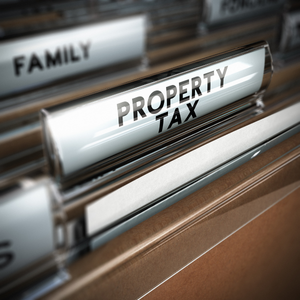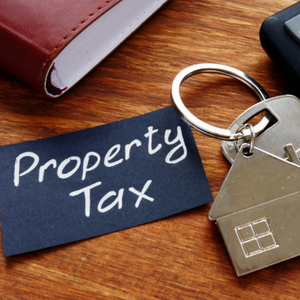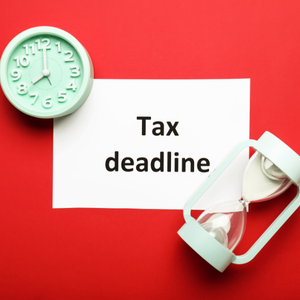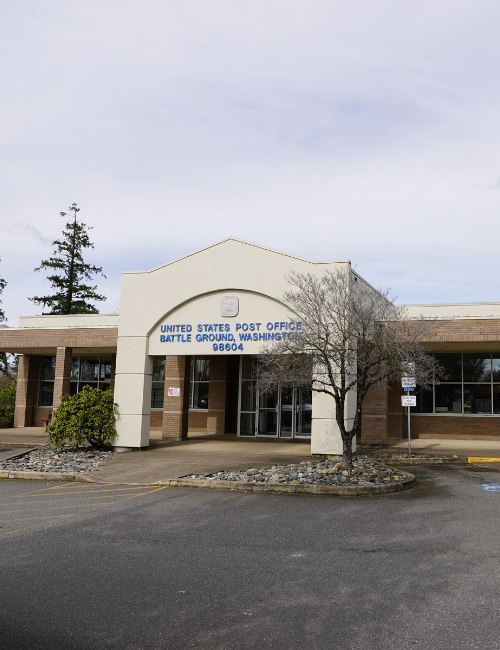
For residents and potential residents of Battle Ground, Washington, understanding property tax rates is more than an academic interest. With its beautiful scenery and vibrant community, residents looking to relocate to a city with excellent public services find Battle Ground a good candidate. As you contend with the intricacies of owning property, understanding Battle Ground’s tax rates will assist you in budgeting and planning. This guide focuses on the details related to property tax in Battle Ground, including how tax rates compare with the rest of the state and what homeowners can expect in the annual assessments. Arm yourself with critical information so that you can make the best property decisions in Washington.
Brief Overview
For homeowners and investors in Battle Ground, WA, understanding property taxes and their impact on planning and making real estate decisions is important. The taxes are a function of price assessments and levy rates, which different levels of government entities pass, and which support vital services like schools and roads. Financial stress can be eased by managing bills in a timely manner and familiarizing oneself with the assessment and appeal windows. Competitive taxes that compare favorably with those in surrounding areas encourage investment in Battle Ground. Moving forward, tax compliance will become a more important strategy than tax avoidance and will require keeping track of laws and risks of forfeiture that will provide tax relief.
Key Highlights
- In Battle Ground, WA, property taxes pay for services such as schools and public safety.
- To calculate property taxes, the assessed value of a property and the levy rates set by each taxing authority are used.
- In Battle Ground, taxes are billed in two installments, the first due April 30 and the second due October 31.
- Assessments may be appealed, and understanding this process may alleviate tax burdens in Battle Ground.
- Managing tax liabilities is easier if you engage with the authorities and monitor changes in local policies.
Understanding Battle Ground’s Property Tax System

For adults living and investing in Battle Ground, Washington, understanding the region’s property tax system is important. Property tax in this region is based on levy rates and the assessed value of property. It is equally important to understand the extent to which the property tax pays for vital amenities in the community. This section outlines how property tax is assessed, taking into account the intricacies involved in tax rates and tax levy rates, which determine the value of property and how much is owed by the individual.
How Property Tax is Calculated in Battle Ground
While calculating property tax in Battle Ground may appear challenging, it is relatively easy when you identify the components that need calculating: the property value and the equity that the different tax districts in Clark County assign. The county assessor evaluates the property’s worth in consideration of the current market, and the assessed value multiplied by the aggregate levy rate that the city, county, school district, and fire department provide is calculated. The levies provide the vital public services such as education, public safety, and maintenance of the infrastructure.
Example: If your home in Battle Ground is assessed at $400,000 and the combined levy rate is 1.2%, your annual property tax would be $4,800 ($400,000 × 0.012). Staying informed about assessments, levy changes, and available exemptions, such as those for seniors or veterans, can help you manage your property taxes more effectively and even reduce your yearly costs.
Practical Tips for Managing Property Tax Responsibilities in Battle Ground
- As a calendar event marker for assessing the property value shift.
- As for the property value shift, public meetings for the budgets and levy rates.
- Look for the exemptions and tax credits for seniors, veterans, and the disabled.
- Logging for the tax rate closures and the voter-approved measures’ tax rate changes.
- The property assessor for property value questions.
- Consider appealing if you believe your property has been over-assessed.
- Local and tax policy community news.
The above statements help the community to understand and simplify property tax responsibilities better.
Analyzing the Variability of Property Taxes in Clark County

Clark County has many different property tax rates. This is especially true when comparing cities in the county. Among the tax rates, Battle Ground is particularly interesting. This is due to the community’s growth and development dynamics. Locally, comparing Battle Ground to cities such as Vancouver in the area provides residents and investors a better understanding of the potential impacts of real estate investments and homeownership. This is important so stakeholders understand the degree of variability that location-based rates create on property taxes in Clark County.
How Battle Ground Tax Rates Compare Within The Region
Assessing property tax rates in Clark County, Battle Ground occupies a singular and favorable position. Being the only growing city, its balanced community service provision helps it maintain competitive tax rates. Unlike Vancouver, which has relatively more infrastructure and higher service demands, Battle Ground has managed to keep rates reasonable with the provision of basic public services. This situation is positive because it attracts new homebuyers and investors seeking reasonably priced options in the expanding Washington state real estate market.
Local tax districts and voter-approved tax adjustments are the most relevant determinants of the effective tax rate in Battle Ground. While median rates do change, and often within the context of the tax provision of adjacent municipalities, they trend lower, and in the context of tax provisions outside of the region, they trend lower. This is a positive situation for planning and the use of taxpayer funds. The positive planning and investment in community services Battle Ground provides further enhances its appeal in the region to the public and real estate developers as a desirable Clark County location.
Deadlines and Tax Bills in Battle Ground

Property owners in Battle Ground, Washington, should understand District and Assessment deadlines and how stratifying your tax bills affects your property taxes. This is beneficial since tax bills can result in fines if deadlines are missed and aid in financial planning if deadlines are understood. The tax bills are influenced by numerous variables. This article helps explain tax bill stratification, deadlines, and how the system applies in the rest of Clark County.
When to Expect Your Tax Bills
Property owners in Battle Ground, WA, will want to note the deadlines for tax bills in order to avoid penalties and for better financial management overall. Each year, Clark County issues property tax bills in two installments. The first tax bill is due on April 30 and covers the first half of the year (January to June); the second tax bill is due on October 31 and covers the second half of the year (July to December). Failing to meet these deadlines will accrue interest daily and could ultimately result in a lien against the property. To avoid late penalties and save on tax payments, homeowners should be encouraged to budget for taxes on a monthly basis. Homeowners should consider automatic payments, when available, to avoid a late payment financial burden.
Tax bills are the result of property assessments conducted by the Clark County Assessor’s Office, which takes into account market conditions as of January 1 of the assessment year. Unchanged levy rates do not guarantee that tax bills will not rise, as the property owner’s property value will increase. Assessment changes, levy changes, and the potential for exemptions are useful to estimate tax liabilities. Regularly checking county notices and subscribing to county updates are proactive and helpful strategies to avoid tax bill deadlines. These strategies will help Battle Ground homeowners plan financially.
Strategies for Managing Property Tax in Battle Ground
In Battle Ground, Washington, dealing with property taxes requires foresight and an appreciation of the nuances of the local taxation context. Property taxes represent a significant cost, so it is necessary to implement strategies to reduce this burden. Homeowners should focus on appealing assessments, determining various exemptions, and understanding and following taxes to mitigate the burden while still meeting the requirements of Clark County. Knowledge of the county tax appeals process will, in particular, help homeowners address inequities due to taxation and disparity so that they can ensure they are being properly taxed.
Tips to Navigate County Tax Appeals
In the case of Battle Ground, WA, navigating county tax appeals commences by examining the property assessment to verify if it has been made accurately. Valuations of home assessments can be compared with Clark County property assessments. Identify valuation disparities to find a case to contest the assessment. The Clark County assessor’s office can be contacted later, after the necessary evidence, including the most recent sales information, photographs, home condition documentation, and assessed appeal information, has been obtained. Appeals must be made within a certain time period after an assessment notice has been issued, so be sure to keep track of the county treasurer’s deadlines.
In complicated situations, it is advisable to engage a local property tax professional or lawyer. These professionals are likely to add value to the case and help strengthen the appeal. These appeals simply provide a property tax payment delay, so prospective appellants must understand that the likely value of the outcome will be a tax value adjustment, quite the opposite of a payment reduction. Understanding tax legislative shifts, likely exemption values, and tax levy rates will likely help prospective appellants in reducing tax payments further. Overall, the assessment system is designed to help maintain a fair tax system, within which manageable tax rates are levied on property owners within Battle Ground. Regular engagement with the property tax system and local authorities should be encouraged.
| Strategy | Purpose | Steps Involved | Potential Outcomes |
|---|---|---|---|
| Tax Appeals | 1. Gather evidence of overassessment 2. File an appeal with local authorities 3. Attend the hearing and present the case | To reduce the assessed value of the property and lower taxes | Possible reduction in property tax liability |
| Legislative Awareness | To stay informed about changes in tax laws | 1. Monitor local government announcements 2. Subscribe to newsletters 3. Engage in community meetings | Enhanced understanding of tax obligations and potential savings |
| Homestead Exemption | 1. Gather evidence of overassessment 2. File an appeal with local authorities 3. Attend hearing and present the case | To manage the payment of taxes in installments | Tax reduction through exemptions |
| Payment Plan Arrangements | To lower the taxable property value for primary residents | 1. Contact local tax office for options 2. Agree to terms and conditions 3. Make scheduled payments | Ease of financial burden with spread-out payments |
This table shows Battle Ground homeowners how to manage property taxes to make financial obligations easier.
For homeowners and prospective purchasers alike, time spent understanding Battle Ground, WA, property tax rates is time well spent. Along with Washington State property tax rates, understanding Battle Ground tax rates means understanding the State’s regulations, the professional taxes levied locally, and the assessed property value. Your understanding should be comprehensive enough to roadmap probable shifts in tax liabilities resulting from legislative and policy changes. Engaging with tax practitioners and tax attorneys can assist in beneficial compliance and exemption planning, helping to avoid draining taxes on your cash flow, real estate, and investments.
Are increasing Battle Ground, WA, property tax rates putting pressure on your finances? If you’re thinking about selling, Sell With Isaac offers an easier way out. As trusted cash home buyers in Washington, we provide fair cash offers that let you sell without the stress of repairs, commissions, or long waiting periods. Our team handles everything from paperwork to closing, so you can sell your Battle Ground house faster and move on with confidence. Whether you’re facing high taxes, maintenance issues, or simply want a hassle-free sale, we’re here to help. Contact us at (360) 207-4133 today for a no-obligation offer and start your smooth selling journey now.
FAQs
What affects Battle Ground, WA, property taxes?
Property taxes in Battle Ground, WA, are based on assessed value and government levy rates.
When are property tax bills due in Battle Ground?
Battle Ground property taxes are due twice a year, on April 30 and October 31.
How can Battle Ground homeowners lower property taxes?
Understanding and appealing property assessments and knowing about exemptions and credits can lower property taxes.
What services are funded by property taxes in Battle Ground, WA?
Schools, roads, and public safety in Battle Ground, WA, are funded by taxes.
How do Battle Ground’s property taxes compare to those of nearby areas?
Battle Ground’s low property tax rates attract residents and investors compared to Vancouver, WA.
Helpful Battle Ground Blog Articles
- Should I Sell Rental Property in Battle Ground, WA?
- Selling a House in Bad Condition in Battle Ground, WA
- Can the Executor of a Will Sell Property in Battle Ground, WA?
- Average Cost to Sell a Home in Battle Ground, WA
- How Long After an Appraisal Can You Close in Battle Ground, WA?
- Selling a House to a Family Member in Battle Ground, WA
- Battle Ground, WA, Neighborhood Map
- Fun Facts About Battle Ground, WA
- Battle Ground, WA, Property Tax Rate
- Is Battle Ground, Washington Safe?
- Battle Ground, WA Property Managers
- Free Things to Do in Battle Ground, WA
- Battle Ground, WA Cost of Living

